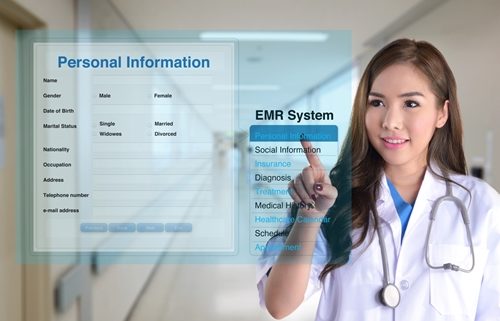Is your patient portal actually benefiting patients?
When doctors made house calls, they were giving their patients the most personalized care possible. They paid special attention to the individual being treated and kept the patient as comfortable as possible. Of course, the supplies the doctors could bring were limited. When patient care moved to a more formal setting, the techniques and equipment were vastly improved, but it can be argued that something of the patient-focused care was lost. Now, patient portals and electronic health record software is beginning to bring the focus back around to the patient.
But not all patient portals are created equally, and each piece of software will not work as well for one practice as it might for another. For example, a practice that specializes in orthopedic care would benefit from using an EHR system designed specifically with orthopedic specialists in mind. Nevertheless, many practices continue to adopt general software, which is often designed to hit the biggest target possible. One can image how many unnecessary features a piece of software would have if it was built for a large-scale hospital, yet was being used in a small orthopedic clinic. More is not always better, especially when it could confuse patients and limit their engagement with a platform that is otherwise meant to get them more involved with their health care.
The benefits of specialized patient portals
All of the benefits of a patient portal stem from easier access to and communication with health care providers. Being able to ask questions about treatment options and ask for refills on prescriptions are just two ways that patients can interact with their doctors that, in the past, would have required another visit to the clinic. When the software is specialized to the specific focus of the practice, this communication is streamlined further – there's no need to navigate around superfluous tabs. The patient can navigate the portal with little base knowledge of the technology.
Access to a patient portal also eliminates the need for phone calls to the clinic. Patients can get fatigued very easily when it comes to navigating phone trees and sitting on hold for long periods. According to Medical Practice Insider, patient portals can reduce the average 4.2 phone calls it usually takes to inform patients of their lab results. This may not seem like a lot, but when people expect information and results quickly, it can mean the difference between keep and losing patients at your practice.
A new generation
A meta-study conducted by the California Healthcare Foundation found a higher adoption rate of patient portals among younger adults. As more aspects of daily life enter the online realm, patients will begin to expect to find their patient records there as well. The new generation of young adults grew up with some form of access to the internet – it's no longer a luxury, it's a necessity. That means all medical practices will have to move toward patient-geared online solutions, lest they get left behind in the dust.



